Talking Shop
This brand new miniseries is on the tools and resources we use for writing. How it works is this: Every month we bring you a tool that has served us well, and that will maybe help you on your own journey ahead. So wrap that tool belt around your waist, and hitch it nice and tight. Because we have plenty of tips on which books, websites and podcasts you might want to try on for size.
Sarah’s pick this month was Dreyer’s English by Benjamin Dreyer. And Ashley’s choice was a compilation of interviews, titled Writers on Writing, and edited by James Roberts, Barry Mitchell, and Roger Zubrinich.
And, be sure to listen in for recommendations of books we’re reading on the side ‘for fun’ (although, really, it’s all fun, isn’t it?).
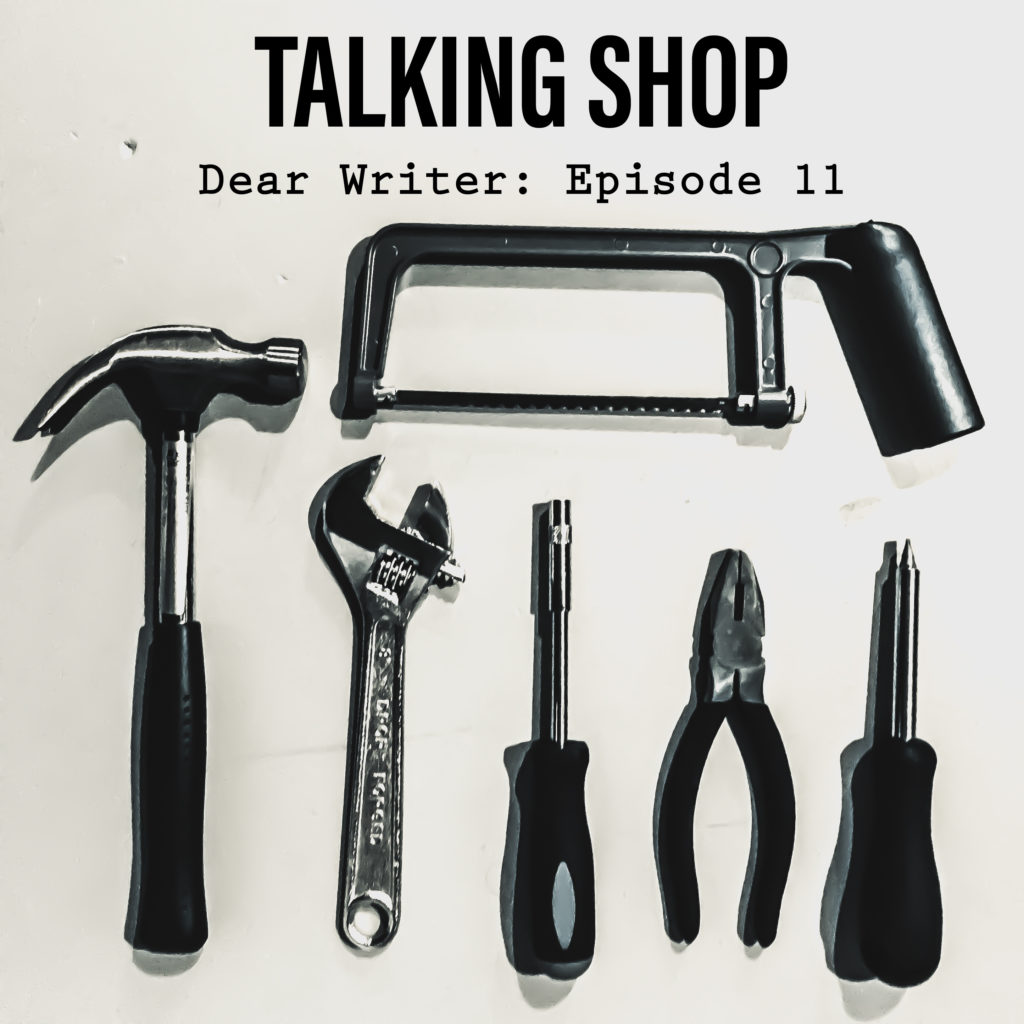
Transcript
Ashley: Hey everyone, welcome back to Dear Writer. Today is going to be our first episode for our miniseries ‘Talking Shop,’ but this is actually episode 11.
Sarah: Yes.
Ashley: We’re getting through the episodes, which is very exciting. So, in this miniseries, we’re going to be talking about some of the writing tools that we use, or are using currently just to kind of give you a little bit of an idea of what we’re using and hopefully finding some tools that can also be useful for you.
Sarah: Yeah.
Ashley: We should probably just jump right into it. What have you… what… uh, what have… what… oh my God. What writing book have you been using recently, Sarah.
Sarah: So my pick for this podcast episode was Dreyer’s English. And I actually read it a little while ago, but I, I really enjoyed it when I read it, and I refer to it when I’m writing if I have questions about grammar. Because it’s, it’s really at its core, a book on grammar. It’s a book by Benjamin Dreyer. He is a copy chief of Random House, so he has a fair bit of experience in editing and grammar and…
Ashley: Sounds like a perfect person to write a book on it.
Sarah: Yeah, it’s really interesting just to see inside an editor’s head. And he’s not—well, it’s not like know him personally. But reading through the book, it’s not like he’s a really pretentious grammarphobe.
Ashley: Right.
Sarah: Grammarphobe? That’s wrong word. Phile. Grammarphile. No.
Ashley: Yes? Grammarphile. Grammarphile. We’ll go with that. I don’t know if that’s quite correct, but we can go with that.
Sarah: Yeah, um.
Ashley: Is this is the one that you often were sending me a little pictures of, with hilarious passages in?
Sarah: Yes. Yeah, it’s that one. So, when you’re reading through this book, it’s not really dry like some grammar books can be. Telling you, oh this is, you know, the way that you use commas or, you should never do this and never do that. Always do it this way. So, he’s quite narrative in his style and he has a fair bit of humor in the book. So really even you don’t want to read like a book on grammar, or… it’s just a very amusing read in general. So I do have a few passages from it. Some of my favorite quotes—I tried to go through and pick out some of them, but it was quite hard because I was leafing through it trying to find particular ones that I remembered and yeah. But anyways:
Dialogue can be said, shouted, sputtered, barked, shrieked or whispered—it can even be murmured—but it can’t be smiled or shrugged.
Ashley: That’s amazing advice.
Sarah: And when I read this, I suddenly realized we do this—or we used to do it—all the time. And lots of my edits in our book has been going through and then changing it from, I don’t know…
Ashley: ‘He smiled’ to ‘he said with a smile’ or something like that.
Sarah: Yeah, yeah. Or full stop. He smiled. Or more often, it’ll be like he smiled, and then I’ll start the sentence because it’s nice to have, like, a lead in, and then you don’t need the dialogue tag after. But I think really improved my dialogue, just knowing that.
Ashley: I would agree. et.
Sarah: Not having characters shrugging…
Ashley: Shrugging words?
Sarah: Yeah. Or nodding words or whatever.
Ashley: Shrugging words kind of sounds like it’s raining words and you’re just like, shrugging them off your shoulder.
Sarah: Yeah.
Ashley: Kind of what I’m envisioning.
Sarah: He gave an example in it of someone who decided to go against that advice, and leave it as he smiled. But And it’s probably okay every now and then, but mostly I think it’s good advice to, to leave it out.
Ashley: I think in our original versions we also used other ridiculous words, not even just smiled or shrugged.
Sarah: Yeah, which kind of brings me to the next, the next passage:
With all the nodding and head shaking going on, I’m surprised that half the characters in modern fiction haven’t dislocated something. By the way, characters who nod needn’t nod their heads, as there’s really not that much else available to nod. And the same goes for the shrugging of unnecessary-alluded-to shoulders. What else are you going to shrug? Your elbows?
Sarah: It’s amazing.
Ashley: That’s really funny because, didn’t I pick out at the very start, I was like, why do our characters nod so much?
Sarah: I know! And even worse than just nodding, is occasionally I would come across a passages where they nod enthusiastically. Just try nodding enthusiastically. Or I can’t remember what it was now. There was some very, I just see this head, bobbing up and down really fast.
Ashley: I remember what it was now.
Sarah: Oh so funny though. Nodded exuberantly, maybe? I don’t know.
Ashley: I think it was something like that. Which we promptly deleted. Once you have… once you have these images of people… I find images of people nodding in general is weird. So I tend not to use them that much anymore because I don’t think… I try and imagine, if James said something to me, would I like, nod back? And the answer is probably not.
Sarah: Well, I don’t know. I think people do nod without realizing it that much. But it doesn’t… because that you don’t realize it that much, then it almost comes across unnatural in written language because, yeah, most people wouldn’t notice people nodding. They would just sort of take it in and be like, oh, this person’s listening to me, we’re having a conversation. They are receptive to what I’m saying. But you wouldn’t consciously go, oh look at them nodding. So if you say it too much and well, if you write it too much, then it just comes off as like, can’t you think of something else for the character to do?
Ashley: Especially when it’s like, she nodded in agreement. Yes, or something like that. You’re like, well that was redundant, wasn’t it?.
Sarah: Well, yeah, yeah. The ‘nodded in agreement’. What else? Are you gonna nod and—well I guess you can nod and be in denial, but you know. Generally when people are nodding, they’re saying yes to something, so. But then, also we had like lots of people crossing arms across the chest. Where else are you going to cross your arms? Behind your back? I guess, but usually unless you define, oh she crossed her arms in front of her knees, I guess maybe. But we had a lot of crossing arms across the chest. And he points out things like ‘thinking to myself’. Who else are you thinking to?
Ashley: That’s quite a good one, that one. It’s because you say things to yourself. So I guess people automatically like translate that into the thinking part not realizing that oh, actually.
Sarah: Unless your character’s…
Ashley: Unless it’s some sort of weird sci fi, where people can hear your thoughts. I guess it’s bit redundant.
Sarah: So I guess that’s as I say my pick. So it’s a very amusing read. I highly suggest it and it’s helpful just to have a copy of that, because it’ll… it’s got a very handy section in it called ‘The Confusables’. Which, you know, goes over words that people often get confused, and the ones that people often misspell. And you know it’s not an all-inclusive grammar book, and he does give some suggestions on a good… good books or good websites. Like I think he uses Mirriam… Mir… I can never even say that right. Is it Merriam? Or Miriam? Merriam, I guess.
Ashley: I think, I assume you mean the dictionary, Merriam Webster.
Sarah: Yeah the dictionary. Merriam Webster.
Ashley: Love that dictionary.
Sarah: That’s one that I use frequently.
Ashley: That might be something I talked about on the podcast, one day. I love, I just love that dictionary. Seems weird to have a favorite dictionary, but.
Sarah: It does, but it’s very handy, and handily available online. So. Anyways, so yeah that’s my suggestion. Dreyer’s English by Benjamin Dreyer. And, oh I should point this out as well, is that he now has—if you’re a total geek like me, I want to say a board game, but it’s more of a card game.
Ashley: That sounds amazing.
Sarah: To improve your grammar and punctuation skills. And compete against people because, let’s be real, we all want to think that we’re the best at grammar compared to everyone else. Now you can prove it to your family, that you do know the most.
Ashley: What’s it called?
Sarah: Oh, so the game is called Stet! Dreyer’s English by Benjamin Dreyer. Because you know ‘stet’ is what writers would put across editor’s notes when they want the editors to leave it alone, and it means ‘let it stand’. So, I guess the game is kind of about you have to work out whether there’s anything wrong with the phrase that he gives you on a card. And if it’s wrong, you point something out and then if it’s fine, then you say ‘Stet’, and the person who’s right wins. That kind of thing. Yeah.
Ashley: Sounds really enjoyable.
Sarah: Yeah. We haven’t played it yet because um…
Ashley: That’s a game I would play.
Sarah: Because obviously with covid, there’s not… like there’s just me and my husband here, especially in Calgary there’s only the two of us. We don’t have any family in Calgary or anything. But one day, one day. When there’s more than two of us to make it more interesting, we will play it. It’s boring with just two because… especially because Dan and I are both quite good as well. Or at least I’d like to think so. But anyways.
Ashley: Yeah. I understand that. I’m very, very competitive and—
Sarah: Can I just say that playing games with your family is super intense, so I can believe that!
Ashley: James’ family is just as bad. They’re so competitive. So James and I can’t play board games, if it’s just the two of us, because I… I don’t want to lose so badly that I’ll either not try as hard just, you know, cause then I’ll feel better if I lose, or I’ll try to hard and then it becomes an argument. So, we tend not to play.
Sarah: I cried over Banana… what, what is it called? Bananagram? Some… it’s like Scrabble but, but not.
Ashley: I don’t even remember.
Sarah: It’s like race Scrabble.
Ashley: Oh, okay. Yeah.
Sarah: I couldn’t win, so I cried. I’m a bit ashamed to admit that. But let’s be real here. That’s how competitive I am.
Ashley: Yeah. I totally, totally get that. I totally get that. Yes. So, I don’t usually play to play games. I, I tend to play the, the cooperative games when you play as a group, against the board. Because then if we lose, we all lose, or we all win. And so I can’t get angry and flip the board and walk out.
Sarah: Yep.
Ashley: Especially when people cheat. Oh my gosh, I can’t handle it when people cheat.
Sarah: Heh, yeah.
Ashley: And some of James’ family believe that if you can cheat and get away with it, it counts. I’m like, but it doesn’t count because you’ve cheated. And so I get so mad, so.
Sarah: Ah dear. Anyways, what was your pick for the month.
Ashley: So this month, I’ve been reading a book called Writers on Writing. It… I actually got it at a secondhand booksale. Um, when would it have been? Probably in March sometime, I got a whole bunch of writing books and they’ve been sitting on my bookshelf. And I decided to start reading this one. It’s actually quite good. It’s a book with a series of interviews in it and they interview… I think it’s twenty-four authors, is what it said on the back. Both international and Australian authors, and they interview them about their methods, how they structure their day, about how they get inspiration, about the editing process and how they got started, and whole bunch of things like that. And I found it really, really interesting. It has a lot of I’d say interesting perspectives on things. It seems like every one of the writers in there is quite different. So some are, you know, super structured. Others… there’s this one lady who I was reading, says she… I kind of felt kindred spirit with her. She says she writes her books and then, as she writes them she makes them fairly, I guess, perfect in her eyes. So the editing for her isn’t super extensive. She’s not one of those ones who will then rearrange the entire structure of her book, you know move scenes around and stuff like that. It’s all fairly coherent. But so it takes her longer to write, like get words down, but then the editing process is a bit shorter. I was like, oh that’s interesting. Because often you hear people talking about, you know, we just put words down and then we, you know, edit multiple times, deleting scenes, adding scenes, moving chapters. So I was like, mmm. That’s interesting.
Sarah: Yeah, yeah.
Ashley: So I also picked out a couple excepts that I quite liked. So the first one goes:
I don’t quite know what inspiration means. Some days you want to write, some days you don’t. The days, you don’t sometimes you write better than the days you do. I can’t remember who said it, but what’s the use of inspiration striking if you’re not sitting at your desk when it does? Inspiration comes out of your head. It’s a mixture of the impulse to write and just extraordinarily hard work, which at times is boring, and sometimes it isn’t.
Ashley: It’s by an author called Faye Weldon. I really liked that.
Sarah: Yes.
Ashley: It’s very… I don’t know, frank. And I was kind of… it feels very true, like you always like to, you know, hope you have inspiration to write, but then often either you’re not in a place where you can write, you’re at work or something. Or you just have to sit there and force words to come out. So I quite liked that.
Sarah: Yeah, it sounds very interesting. Is there anything in particular that you’ve taken from the book and sort of consciously applied in your… in your writing?
Ashley: A lot, there’s a lot of good suggestions about, I guess how to find time to do your writing, or you know, re-enforcing the fact that you… writing a book takes time and discipline to finish them. And it kind of made me feel better. That obviously these writers have the same issues.
Sarah: Yeah.
Ashley: They still struggle sometimes to write… get writing done and have to also struggle to make time to do it. So I felt a little bit better, a little bit better. It’s mostly just been interesting reading different people’s perspectives and how they feel about certain things.
Sarah: Yeah, I think it highlights it, you know, that writing isn’t the same for everyone because…
Ashley: Yeah
Sarah: Yeah, you get all this advice when you’re starting out, and sometimes it can be confusing to know what’s best, but it’s something that I… when I, when I was still working as a nurse, I used to tell people when I was teaching them how to scrub for like a procedure or something, is that, I’m going to give you my tools. And over time, you know, you’re going to see tools from… and different ways of working from other people, and it’s totally fine to change it. You know, you take the best practices from different people and then merge it and so that you have a method of your own that works for you, right?
Ashley: Yeah, definitely. Definitely. And yeah, I guess, because there’s so many different authors interviewed in this book you… there are some that work very similar to you and you’re like, okay, I’m not alone. And there are others that work really different, and you’re like oh, that’s really interesting. Like, maybe I can use something that they do to help me, maybe be a bit better. But it’s been very interesting.
Sarah: Yep.
Ashley: And I do have another passage as well, which is about editing and editors, which I found incredibly amusing. So it says:
Sometimes it’s sixteen pages of ‘you’ve got really in two sentences here’. When you write at the speed I do, they’re picking up everything. Occasionally I had a chap who lost his virginity and two different books. And that was really difficult. On the whole, I’m just filled with awe at the things people can pick up for me and I’m endlessly grateful for their hard work.
Ashley: I totally get that. You’ve heard in our mistakes about some of the ridiculous things that we found. And it made me really happy that other professionals have the exact same problems.
Sarah: Yes. And that was something that also came up and Dreyer’s English as well, is consistency issues. They’re hilarious.
Ashley: So, yes. That’s my pick for this… this episode. Writers on Writing. Apparently it’s also based on a… they had a TV show on it, so I’m going to try and find that, that they recorded. I dunno. It’s fairly old, but I feel like, well, that it’s still relevant.
Sarah: So is… obviously it’s a compilation of multiple authors. But is there a publishing… or editor that the book’s under or?
Ashley: It says it is edited by James Roberts, Barry Mitchell, and Roger Zubrinich. It’s based on the popular ABC television series. It’s written… it’s by Penguin. The publishers.
Sarah: Okay, cool.
Ashley: Yeah, no, it’s really, it’s really good. I’ve been enjoying it. Been enjoying it. It’s quite a light read, and I flick through. It’s been good.
Sarah: That’s cool. Should we move on to what we’re reading for fun, then?
Ashley: Yeah, sounds good.
Sarah: Do you want to go first?
Ashley: Sure. So I’m reading a mystery thriller novel by an author called Peter May. It’s called Cast Iron and I really love his books, I’ve been consuming all of the ones that he has written. I said in a previous podcast that I really enjoy scene setting, and he’s a… I think he’s a Scottish author, or at least he’s based and a lot of his books are based in Scotland. And all of the settings that he puts these murder mysteries in are… come across really amazing. So some of the previous ones I’ve read, one was set on like a small barely inhabited island in Canada, and it’s got us super creepy sort of murder mystery that happens there. Is very spooky kind of islands and I liked that. A couple of his others are set way out in the Hebrides in Scotland on those really rugged islands is quite cool. But this one’s set in a small town in France. Which I’ve been… I was supposed to go to France but covid ruined that so I’m kind of reading it, being like that could have been me. But yeah, it’s a, it’s about a cold case that they’re trying to solve. About a body that they found in the lake, after there was a massive drought and the lake receded down and I found her. It’s really, it’s really good at the moment so been enjoying that. What about you?
Sarah: So I have been reading a bit of young adult sort of fiction just as study for my own book that I’ve been writing. So I’ve been reading a Karen M. McManus book called Cousins, which is her fourth book. And actually, I picked up her books because I was looking for one similar to our teen fiction series, which is first-person multi-perspective, and she uses that in all her books. I’ve read quite a few first-person multi-perspectives now, and they’re not all done brilliantly well.
Ashley: Right.
Sarah: But she certainly does hers very well and you feel that you like each character has its—has their own personality. But so her first novel was One of Us is Lying. And that’s been a huge hit. And I think, she’s a very… quite a recent trending author. But yeah, it’s, it’s very entertaining. I tend to churn through them in a couple of days. Which the one that I just read, Cousins, I have just finished that this morning. And it took me about three days, I think. They quite easy going.
Ashley: Yeah.
Sarah: But yeah, they can be hard to get a hold of through the library, because they’re highly popular at the moment.
Ashley: Right. Sounds interesting, I might have to give one of them a go.
Sarah: They’re like mystery/psychological thrillers for teens, so.
Ashley: Oh cool.
Sarah: Yeah, when I started reading them, I realized the quite similar to what I was trying to write for my book that I’m writing, The Night I Lost My Mind.
Ashley: Still stuck with the title, well that title for now?
Sarah: Well, yeah, kind of just left it there for now. I might experiment with it later. But trouble is that of cold at that so long in my head now that it might be quite hard to change. We’ll see.
Ashley: I get that.
Sarah: Parts of me like it and then other parts of me are like, well, that’s a little bit cliché, isn’t it? It feels like it’s been kind of done before.
Ashley: Right.
Sarah: But, we’ll see, we’ll see. It’s the ‘for now’ working title.
Ashley: Yup, yup. Working titles are good. I think it sounds okay.
Sarah: Yeah yeah.
Ashley: It’s definitely… eye-grabby. You know, you’d see that you’re like, well, that looks interesting.
Sarah: Yeah! Found this really interesting picture on Instagram, actually, that obviously I don’t want like copy anything, but it kind of gave me an idea for what the cover might look like if I go ahead and self-publish. I haven’t really decided that yet either. But it was a face with like that… you know that effect where it’s like, shattering?
Ashley: Oh, yes.
Sarah: And there was a black hole in the middle of the face and then, the edges were kind of collapsing into the, into the hole. And so you it was just like the outline of a face. My character kind of, he’s lost some of his memories so that’s the kind of where the link goes in.
Ashley: That’s really cool.
Sarah: So, I think we should start rounding this up. So next time on Dear Writer, it’s our main podcast, and we’re going to be discussing the pros and cons of using different perspectives, you know, first person, third person limited, and the omni, om, I can’t say that. Omniscient?
Ashley: The god one.
Sarah: Omniscient. I’m pretty sure that’s how you say it. Wait, yeah.
Ashley: Yeah.
Sarah: I don’t know.
Ashley: We’ll learn how to say it by the next episode.
Sarah: Anyways, the God one. I can write things, I just can’t say things. Dan pulls me up on that all the time. He’ll be like, did you just say, you know, whatever. And I’ll be like, yes? And what’s even more confusing, though, is that sometimes I’ll be right. It’s just that I’m saying it with British pronunciation and not Canadian or American pronunciation. And so sometimes I’ll be like, but that’s a British way of saying it. And then I’ll look it up and I’ll be like, actually it’s not. Whoops.
Ashley: You have to be like, it’s the New Zealand way of saying it, we pretty much have our own like dialect so…
Sarah: He used to pull me up on saying, particularly. Because I always say ‘particuly’.
Ashley: Yeah I say particuly, too.
Sarah: And then I noticed that you say it like that too. And ‘probly’, and then I was like, yeah, that’s the New Zealand like, slang. Merging all our words together. So, I find it very hard to say, particularly.
Ashley: It’s just, it’s extra effort, isn’t it?
Sarah: I know. Why does it have that extra, like, end part to it?
Ashley: I think kiwis are just a bit lazy.
Sarah: Probably.
Ashley: Well we merge most of our vowels.
Sarah: Then I was thinking, well, actually I should probably try and say this correctly because it really annoys me when I hear people say things like aks, instead of ask. ‘He aksed me’.
Ashley: Oh, yup yup.
Sarah: It’s not ‘aks’. But then, you know, then I screw up with particularly. Larly. Particularly. So, I probably shouldn’t judge.
Ashley: Blame the New Zealand accent. That’s what I’m gonna do. I’m gonna apologize right now to all of our listeners. If we say things weird it’s because of our accent.
Sarah: Yeah, and we don’t write them weird, we just say them weird. Anyways, so I was supposed to be rounding this up. As we say we’re talking about perspectives. And yeah, so join us next time. And if you’re enjoying the podcast, please rate it, review it if you’re on a podcast, subscribe, and you can find us on www.lindersoncreations.com, or @lindersoncreations on Instagram or Facebook. And yeah. Until next week. Happy writing, everyone.









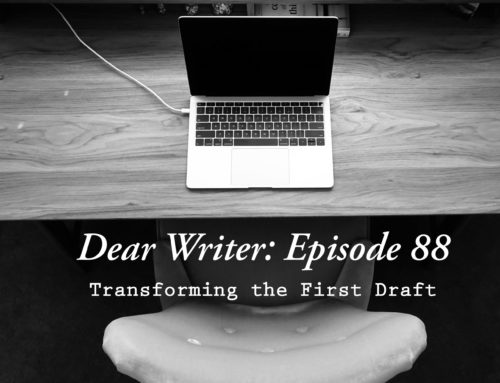
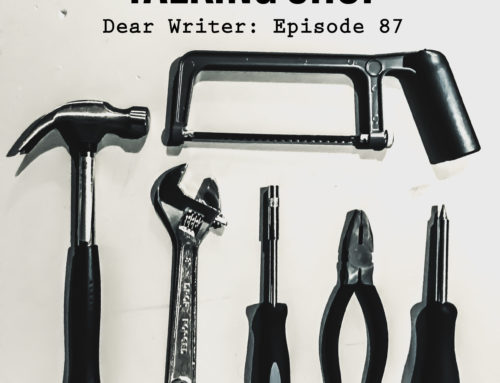

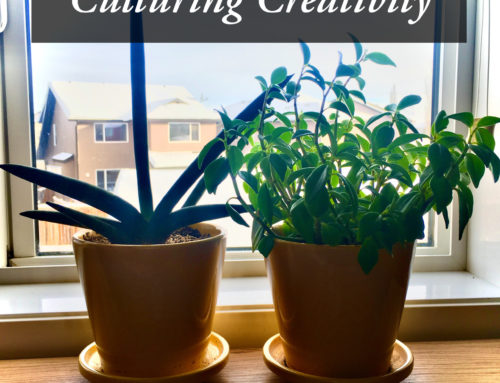

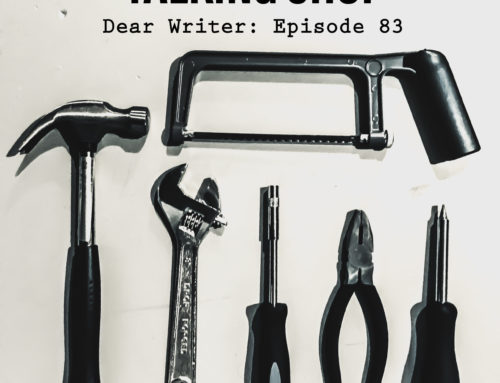


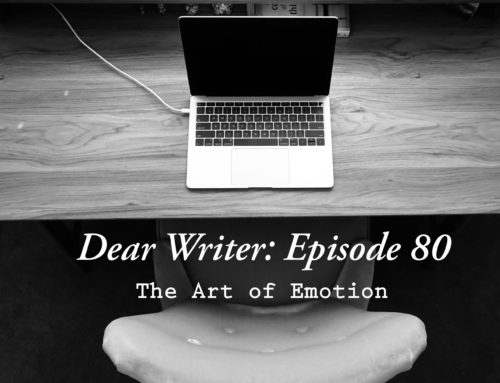
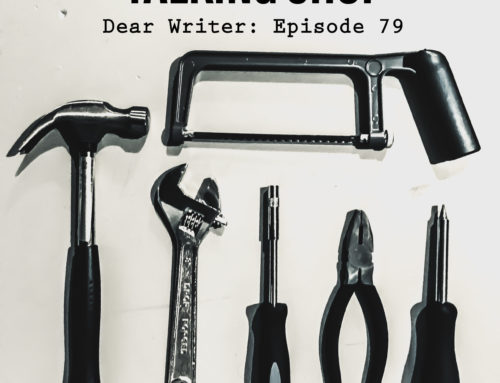
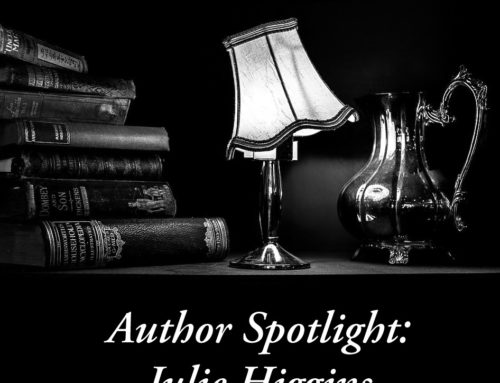
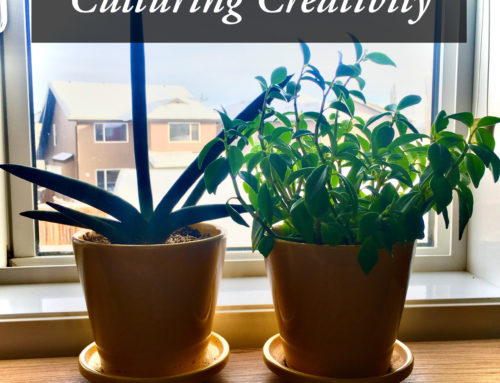
Leave A Comment